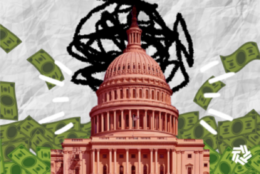White House
-
The preliminary version of the framework will be published in mid-October, followed by several months of public comment. NIST plans a final release of the voluntary framework in February.
September 26, 2013 -
A promise to help power the first family's residence with the sun is finally seeing the light of day. After 30 years, solar panels are finally going back on the White House.
August 16, 2013 -
Victoria Espinel left Aug. 9 after spending more than four years as the Intellectual Property Enforcement Coordinator. OIRA Administrator Howard Shelanski will serve in an acting role until the White House names a new coordinator.
August 13, 2013 -
The departments of Commerce, Homeland Security and Treasury submitted suggestions to the White House on what incentives the government can offer to induce critical infrastructure providers to use the cybersecurity framework to improve their systems and networks. NIST is leading an effort to develop the framework with industry.
August 07, 2013 -
The White House chose nine projects for the second round of the innovation fellows program, including the 21st century Financial Systems project. This program hopes to simplify current accounting methods and minimize cost inefficiencies. Other PIF projects look to create platforms for sharing ideas within and between agencies.
June 25, 2013 -
The administration has suspended the monetary part of the program because of budget reductions. OPM will continue to accept nominations through Friday, however.
June 12, 2013 -
The White House released updated progress report on the cross-agency cybersecurity goals and found most agencies improved. The administration said more agencies are using smart cards to log onto their networks and more are implementing continuous monitoring.
June 10, 2013 -
Each year, the Presidential Distinguished Rank Awards honor members of the Senior Executive Service for their accomplishments. But this year, one very important group of federal employees was left out. Carol Bonosaro, president of the Senior Executives Association, said she's frustrated that this year's event included no winners from the intelligence community because the White House has yet to approve their nominations. An ODNI official said intelligence community winners will be announced soon.
April 26, 2013 -
An update to the Federal Information Security Management Act and the Cybersecurity Enhancement Act of 2013 passed through the House Tuesday night. The Cybersecurity Information Sharing and Protection Act also passed, but faces a veto threat because of concerns over data protection.
April 17, 2013 -
The White House asked Congress for a $2 billion increase in federal technology funding for fiscal 2014. Federal CIO Steve VanRoekel said there is broad recognition that the time to invest in IT is now because of the long-term savings and benefits it can bring.
April 10, 2013 -
Under the law, the President was supposed to submit a budget by Feb. 4. White House aides said deliberations over spending and sequestration in the past few months delayed the release of Obama's blueprint.
March 28, 2013 -
Cyber coordinator Michael Daniel released updated goals for TIC, HSPD-12 and continuous monitoring on Performance.gov. He said by adding new goals to the portal, performance improvement officers will pay more attention and influence how agencies meet the targets.
March 15, 2013 -
The White House released its estimate on the impact of cuts from sequestration would have on each state and the District of Columbia. OMB's Danny Werfel said they still are obtaining clarity on the impact $85 billion in cuts would have on each agency.
February 25, 2013 -
President Obama's recent executive order directing that cyber threat information be shared more broadly with the private sector risks making the data less useful to the intelligence agencies that gather and process it. But the risk is worth the potential reward.
February 25, 2013 -
Despite a veto threat a year ago, House proponents of a cyber information sharing bill say productive talks now are underway with the Obama administration. Reps. Mike Rogers and Dutch Ruppersberger re-introduced the Cyber Intelligence Sharing and Protection Act (CISPA) trying to address privacy and civil liberties concerns.
February 14, 2013



